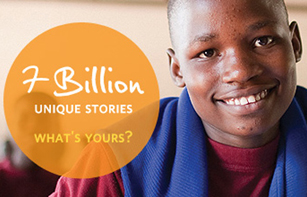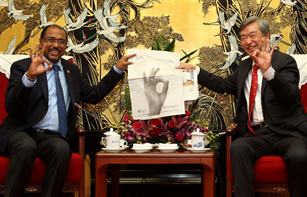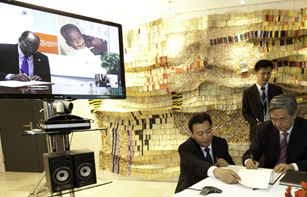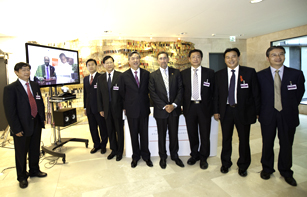
The 7 Billion Actions campaign is intended to act as a rallying point for collective action to improve life for present and future generations.
By the end of this year there will be 7 billion people on the planet. To mark this global milestone, which represents both significant opportunities and challenges, the United Nations Population Fund (UNFPA) and its partners have launched an innovative campaign.
Called 7 Billion Actions, the platform is designed to promote a healthy and sustainable world. It brings together a wide range of UN bodies, including UNAIDS, governments, businesses, NGOs, academics, media practitioners, grass roots organizations and individuals. The campaign, according to UNFPA, will act as a rallying point for collective action to improve life for present and future generations.
According to UNFPA Executive Director Dr Babatunde Osotimehin the campaign aims to realize untapped potential, “It is about embracing the dignity and human rights of every individual. We need to create conditions for each one of us to live on a healthy planet, so we can all reach our full potential. In a world of 7 billion people, we need to count on each other.”
We need to create conditions for each one of us to live on a healthy planet, so we can all reach our full potential. In a world of 7 billion people, we need to count on each other
UNFPA Executive Director Dr Babatunde Osotimehin
On September 14 the UN Secretary-General, Ban Ki-moon, will host an interactive discussion for its official launch. The event will be live streamed and participants from around the world can be part of the global conversation through questions and comments. The campaign’s key launch activities will take place in September and October, culminating in 7 Billion Day on 31 October.
There are a number of thematic areas that the 7 Billion Actions will address. These include: breaking the cycle of poverty and inequality; promoting the empowerment of women and young people and reproductive health and rights; and focusing on the environment, ageing populations and urbanization.
“This inspirational campaign connects people, ideas and actions. UNAIDS looks forward to joining the effort to ensure all voices are heard as we reach this important milestone,” said UNAIDS Executive Director Michel Sidibé.
The challenge to HIV is a critical component of several themes. Greater empowerment of women and girls will have an impact on the AIDS epidemic. For example, many women are subjected to gender-based violence and this may severely hamper their ability to protect themselves against HIV. In the area of the right to an education; increasing girls’ access to schooling has been seen as a ‘social vaccine’ against the virus.
Dealing with HIV and maternal and reproductive health and rights in an integrated way also makes for stronger and more effective service provision. Where HIV testing, eliminating new HIV infections among children, access to condoms, contraception and correct information are all ‘under one roof’ women are more likely to stay healthy. AIDS is still the leading cause of death and disease among women of child-bearing age in low- and middle-income countries.
How to support the initiative
In practical terms, support for the initiative can be shown in a number of ways. For instance, its main messages can be integrated into partners’ programme development; a commitment to the platform championed in statements and public appearances; financial contributions made on individual and corporate levels, and projects, work and best practices shared using the 7 Billion Actions online tools, such as the global website, Twitter and Facebook.
According to the campaign, it is possible to not only build on the work of UN bodies, companies and NGOs, but also on the efforts of individuals: in a world of 7 billion people, incremental actions can create exponential results.
For more information on how to become part of the campaign visit:
www.7billionactions.org















